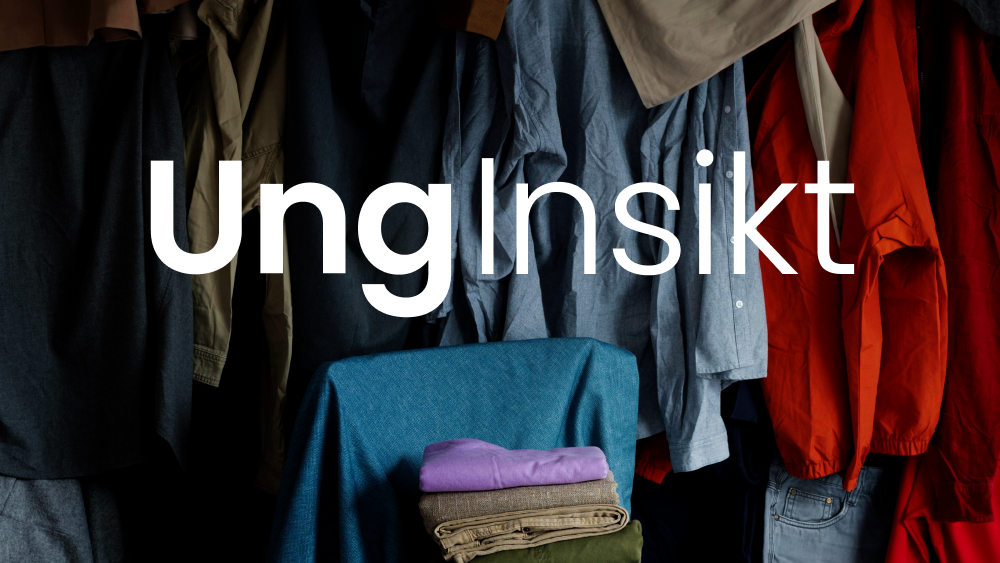Mecenat is now publishing its second report from UngInsikt. The theme this time is the students’ clothing consumption and the challenges it entails living sustainably in an age of fast fashion. Is it really that important for young people to consume clothes sustainably?

According to the report, 85 percent of students buy clothes at least once every six months, with the youngest students being the most frequent buyers. This points to a strong consumption culture among students, despite a growing awareness of sustainability.
The results highlight an interesting difference between what students consider important compared to their actual purchasing behavior. Quality is a factor that many students value highly, but which is often downplayed in actual purchases.
When it comes to climate impact, only five percent of students state that it is the most important factor when choosing clothes. This contrasts with the widespread perception that young consumers prioritize environmental aspects. More than half of the students also experience difficulties in shopping for clothes that have a low climate impact, which underlines the need for more accessible information and more sustainable alternatives on the market.
This may be a contributing factor to why second hand is such a popular option when shopping for clothes. Seven out of ten students have bought used clothes in the last year. This trend is most pronounced among female and younger students.
– The results show that there is a gap between students’ sustainability ideals and their actual purchasing behavior when it comes to clothes. At the same time, the question of sustainability is not unimportant to students, but we also see how to justify the purchase of second-hand goods with the fact that it is good for the environment. But it is a bonus, rather than the dominant factor, says Pelle Ahlin Olofsson, business area manager Society & Opinion at Demoskop.
– Clothes and fashion are a very popular segment of student discounts at Mecenat. The report from UngInsikt gives both us and our partners valuable insights into how the students reason about an area where they spend a significant part of their money, says Arber Karaqica, Marketing Manager Mecenat AB.
The report also addresses the students’ well-being and shows that although they generally rate their well-being as high, there is a decline in the percentage who consider that they feel well compared to the previous measurement.
For more information contact:
Arber Karaqica, Marketing Manager Mecenat AB
arber.karaqica@mecenat.com
Pelle Ahlin Olofsson, Business area manager Society & Opinion Demoskop
pelle.ahlin@demoskop.se
